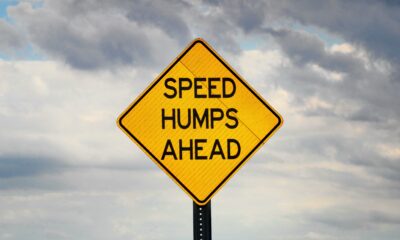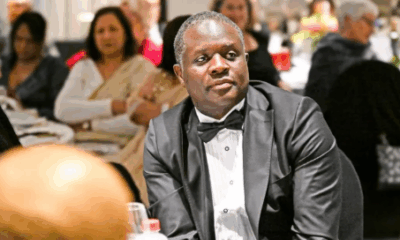News
Trump’s ‘Genocide’ Claim on South African Farmers Draws Criticism, Even from Afrikaners

As President Cyril Ramaphosa prepares to meet U.S. President Donald Trump in Washington this week, controversy is brewing over America’s decision to grant refugee status to dozens of white South African farmers. The Trump administration has pointed to so-called “genocide” and mass land seizures as justification — claims that even many Afrikaner farmers are now publicly dismissing.
At an agricultural fair in Bothaville, a symbolic heartland of South African farming, thousands gathered this week amid tractors, livestock, and gun showcases. For all the international noise, the atmosphere on the ground was surprisingly calm — burgers sizzled, children played, and both white and Black farmers mingled freely.
For some, however, the fair was also a space for somber reflection. A memorial wall honored victims of farm attacks — Black and white. Several Afrikaner farmers quietly touched the names of lost loved ones. But many also took issue with how their realities are being framed internationally.
“There is no genocide and no mass land seizure. That narrative is misleading,” said John Steenhuisen, South Africa’s agriculture minister, who will accompany President Ramaphosa to Washington.
A More Complex Reality Than Trump’s Narrative
The decision by the U.S. to fast-track refugee applications for at least 49 Afrikaners claiming racial persecution has drawn widespread attention. Advocacy groups say applicants must undergo a rigorous screening process. Yet critics argue the move ignores broader context.
While farm attacks are real and troubling, police data show they are part of a wider rural crime crisis — one that affects both Black and white communities. In 2024, 12 murders were reported on farms: one farmer, several workers, and a security guard. No racial breakdown was provided, and the vast majority of South Africa’s 6,953 murder victims last year were Black and poor.
“Crime affects both Black and white,” said Thobani Ntonga, a Black farmer from the Eastern Cape. “It’s not about race. It’s about isolation. Farms are easy targets because we’re far from police stations.”
Other farmers echoed his call for more security, not emigration. Afrikaner farmer Willem de Chavonnes Vrugt said fleeing would mean giving up a way of life rooted in the land for generations.
Refugee Debate Sparks Global Questions
Critics have questioned how the Afrikaner applications were processed so swiftly when thousands of refugees from countries like Congo or Afghanistan wait years in limbo. The U.S. State Department has declined to release details, fueling debate around fairness and racial bias.
Katia Beeden, who supports Afrikaner applicants, said the process includes several rounds of interviews and detailed documentation.
“They’ve warned that you can’t lie or hide anything,” she said. “Not everyone gets approved.”
Still, the decision stands in stark contrast to U.S. refugee policy toward African or Middle Eastern applicants — a point not lost on observers.
Land Ownership and Historical Inequities
Land ownership remains a flashpoint in South Africa’s post-apartheid transformation. Government audits show white South Africans — just 7% of the population — own roughly 72% of individually owned land. A 2017 census of commercial agriculture found over 40,000 white farmers controlling 80% of the country’s most productive land.
Yet these statistics don’t reflect many small-scale Black farmers, who are often excluded from formal datasets due to their low annual revenue. The World Bank has called South Africa “the most unequal country in the world,” with land reform being a central but controversial element of redress.
President Ramaphosa, himself a cattle farmer, visited the Bothaville fair — his first time in two decades — both to connect with constituents and push back against Trump’s rhetoric.
“We must not run away from our problems,” Ramaphosa said. “When you run away, you’re a coward.”
Diplomacy over Division
As the two leaders prepare to meet, South Africa is hoping to correct the record. While security challenges remain real, the framing of a “white genocide” does little to reflect the nuances of rural crime and historical injustice in the country.
Most at the agricultural fair agreed: crime must be addressed — but not by distorting the truth or fleeing the country.
Controversy as US Welcomes Afrikaner Refugees: Hunger, Politics, and a Divided South Africa
{Source: The Times Of India}
Follow Joburg ETC on Facebook, Twitter , TikTok and Instagram
For more News in Johannesburg, visit joburgetc.com



























